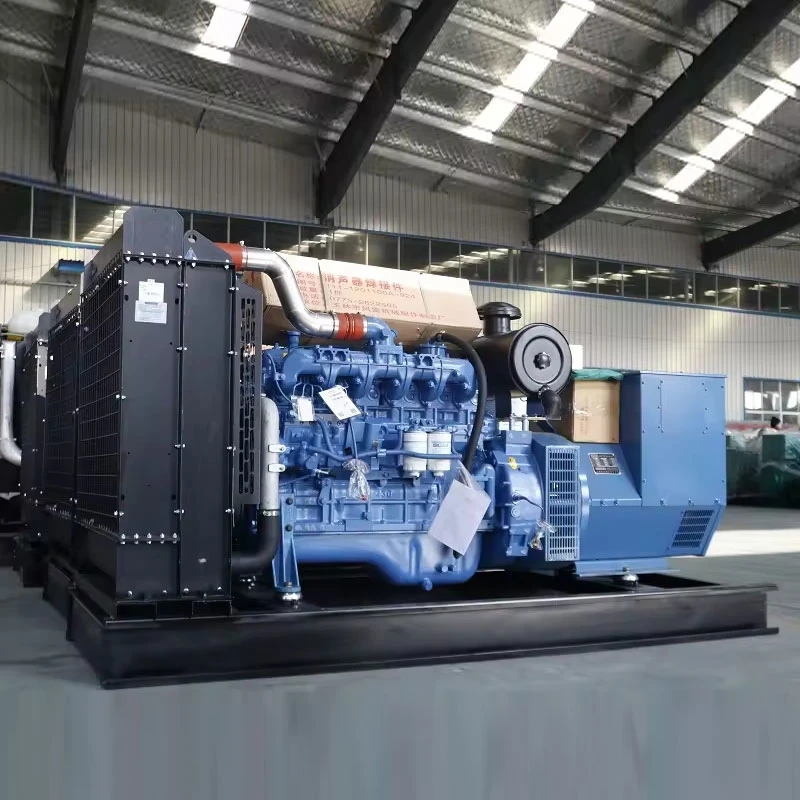Diesel Generators for Hot Climates Ensuring Reliability and Efficiency in Challenging Environments

Introduction
Diesel generators play a crucial role in providing backup power during emergencies or in remote locations where access to the main power grid is limited. In link , the demand for reliable power supply becomes even more critical due to the extreme weather conditions that can impact the performance of electrical equipment. Diesel generators are well-suited for such environments, offering robustness, durability, and the ability to withstand high temperatures. This article explores the key considerations for selecting, operating, and maintaining diesel generators in hot climates to ensure their optimal performance and longevity.
1. Understanding the Challenges of Hot Climates
Hot climates present unique challenges for diesel generators, including high temperatures, humidity, and dust levels. These environmental factors can affect the efficiency and reliability of the generator, leading to potential issues such as overheating, reduced fuel efficiency, and increased wear and tear on components. It is essential to understand these challenges to implement appropriate measures to mitigate their impact and ensure the smooth operation of the generator in hot conditions.
2. Selecting the Right Diesel Generator for Hot Climates
When choosing a diesel generator for use in hot climates, several factors need to be taken into account to ensure optimal performance and reliability. These factors include the power output capacity, fuel efficiency, cooling system, and maintenance requirements of the generator. It is essential to select a generator that is specifically designed to operate in high-temperature environments and can withstand the stress and strain of continuous operation in such conditions.
3. Cooling System Design and Maintenance
The cooling system is a critical component of a diesel generator, especially in hot climates where high temperatures can impact the engine's performance. Proper cooling is essential to prevent overheating and ensure the efficient operation of the generator. It is crucial to choose a generator with an efficient cooling system that can effectively dissipate heat and maintain the engine's temperature within the optimal range. Regular maintenance of the cooling system, including checking coolant levels, cleaning radiators, and inspecting for leaks, is essential to prevent overheating and ensure the long-term reliability of the generator.
4. Fuel Quality and Storage
The quality of fuel used in a diesel generator is essential for its performance and longevity, particularly in hot climates where fuel degradation can occur more rapidly. It is crucial to use high-quality diesel fuel with the appropriate additives to prevent contamination and ensure optimal combustion efficiency. Additionally, proper storage of fuel is critical to prevent water accumulation, microbial growth, and degradation due to exposure to high temperatures. Regular testing and treatment of stored fuel are essential to maintain its quality and prevent issues that can impact the generator's performance.
5. Air Filtration and Dust Prevention
In hot climates, dust and debris can accumulate on the generator's air intake system, leading to reduced airflow and increased engine wear. Proper air filtration is essential to prevent the ingress of contaminants and ensure the efficient operation of the generator. Regular inspection and cleaning of air filters are necessary to maintain optimal airflow and protect the engine from damage. Additionally, implementing measures to minimize dust exposure, such as installing air filter housings and using dust covers, can help extend the life of the generator and improve its performance in hot and dusty environments.
6. Regular Maintenance and Monitoring
Regular maintenance is crucial to ensure the reliable operation of a diesel generator in hot climates. Scheduled inspections, testing, and servicing of the generator's components, including the engine, fuel system, cooling system, and electrical components, are essential to identify and address potential issues before they escalate. Monitoring the generator's performance through remote monitoring systems or on-site inspections can help detect early signs of problems and prevent unexpected downtime. By implementing a proactive maintenance schedule and monitoring program, operators can maximize the lifespan of the generator and minimize the risk of costly repairs.

7. Environmental Considerations and Emissions Control
In addition to performance and reliability considerations, environmental factors and emissions control regulations are also important considerations when operating a diesel generator in hot climates. Diesel generators emit pollutants such as nitrogen oxides (NOx) and particulate matter, which can have adverse effects on air quality and public health. It is essential to comply with local emissions regulations and implement measures to reduce emissions, such as using low-sulfur diesel fuel, installing emissions control devices, and optimizing engine performance through proper tuning and maintenance. By prioritizing environmental considerations and emissions control, operators can ensure the sustainable operation of diesel generators in hot climates while minimizing their impact on the environment.
Conclusion
Diesel generators are essential for providing backup power in hot climates, where extreme weather conditions can impact the reliability of the main power grid. By selecting the right generator, implementing proper maintenance practices, and considering environmental factors, operators can ensure the optimal performance and longevity of diesel generators in challenging environments. Understanding the unique challenges of hot climates and taking proactive measures to address them can help maximize the reliability, efficiency, and sustainability of diesel generators, ensuring a continuous and reliable power supply when it is needed most.
